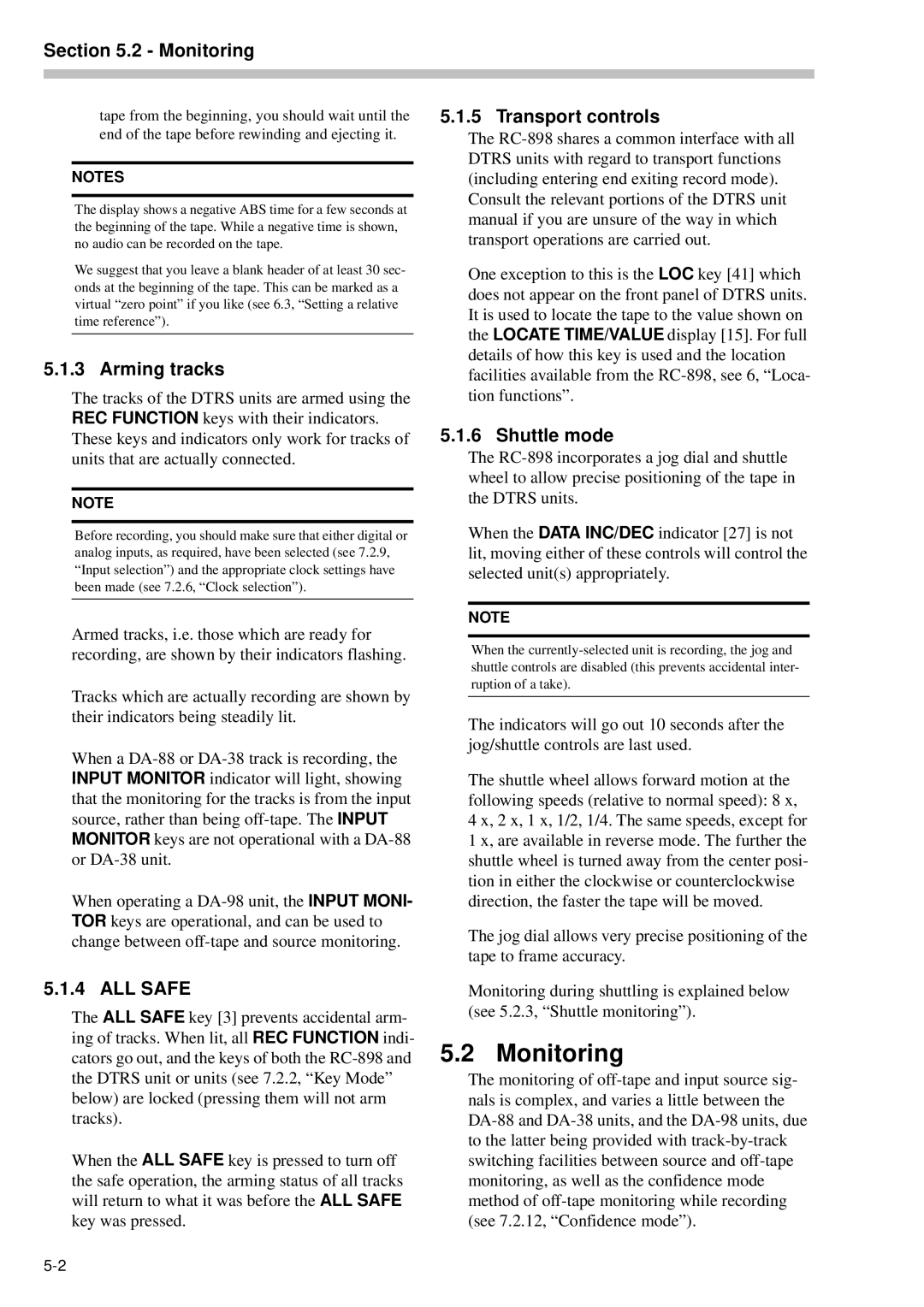
Section 5.2 - Monitoring
tape from the beginning, you should wait until the end of the tape before rewinding and ejecting it.
NOTES
The display shows a negative ABS time for a few seconds at the beginning of the tape. While a negative time is shown, no audio can be recorded on the tape.
We suggest that you leave a blank header of at least 30 sec- onds at the beginning of the tape. This can be marked as a virtual “zero point” if you like (see 6.3, “Setting a relative time reference”).
5.1.3 Arming tracks
The tracks of the DTRS units are armed using the REC FUNCTION keys with their indicators. These keys and indicators only work for tracks of units that are actually connected.
NOTE
Before recording, you should make sure that either digital or analog inputs, as required, have been selected (see 7.2.9, “Input selection”) and the appropriate clock settings have been made (see 7.2.6, “Clock selection”).
Armed tracks, i.e. those which are ready for recording, are shown by their indicators flashing.
Tracks which are actually recording are shown by their indicators being steadily lit.
When a
When operating a
5.1.4 ALL SAFE
The ALL SAFE key [3] prevents accidental arm- ing of tracks. When lit, all REC FUNCTION indi- cators go out, and the keys of both the
When the ALL SAFE key is pressed to turn off the safe operation, the arming status of all tracks will return to what it was before the ALL SAFE key was pressed.
5.1.5 Transport controls
The
One exception to this is the LOC key [41] which does not appear on the front panel of DTRS units. It is used to locate the tape to the value shown on the LOCATE TIME/VALUE display [15]. For full details of how this key is used and the location facilities available from the
5.1.6 Shuttle mode
The
When the DATA INC/DEC indicator [27] is not lit, moving either of these controls will control the selected unit(s) appropriately.
NOTE
When the
The indicators will go out 10 seconds after the jog/shuttle controls are last used.
The shuttle wheel allows forward motion at the following speeds (relative to normal speed): 8 x,
4 x, 2 x, 1 x, 1/2, 1/4. The same speeds, except for 1 x, are available in reverse mode. The further the shuttle wheel is turned away from the center posi- tion in either the clockwise or counterclockwise direction, the faster the tape will be moved.
The jog dial allows very precise positioning of the tape to frame accuracy.
Monitoring during shuttling is explained below (see 5.2.3, “Shuttle monitoring”).
5.2 Monitoring
The monitoring of
